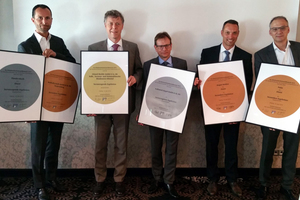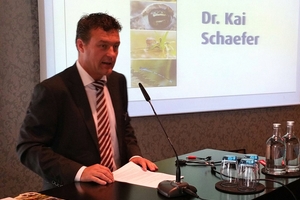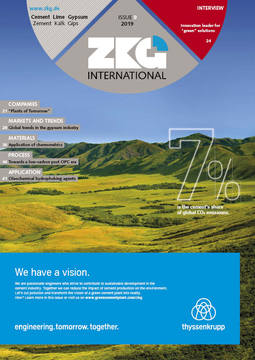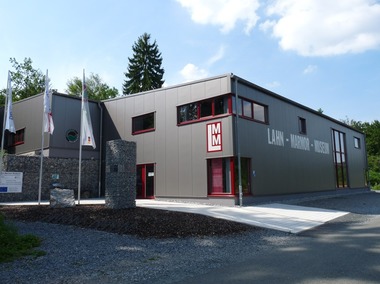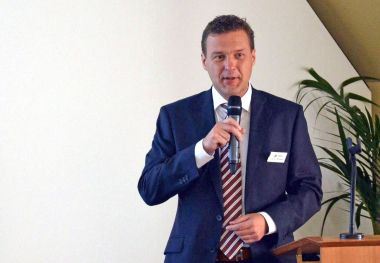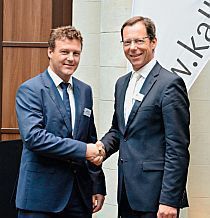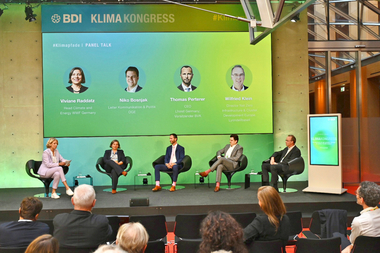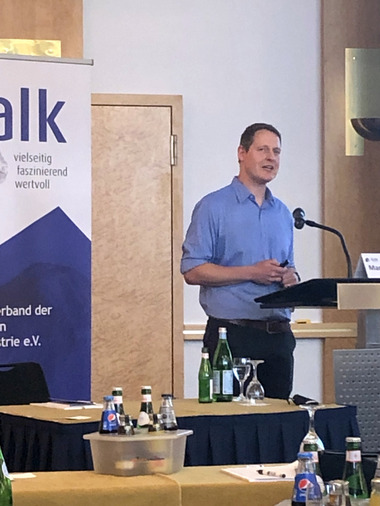German Lime Industry reinforces its commitment to CO2 reduction
On the occasion of the association’s annual meeting in Leipzig, BVK Chairman Dr. Kai Schaefer analyzed the major challenges that the industry is facing, e.g., the economic slowdown, heightened environmental policy expectations on the part of civil society, raw material securance and the target issue of climate neutrality by the year 2050.
This year’s general meeting of the German, Austrian and Swiss lime industries took place as a branch gathering in Leipzig/Germany.
Chairman Dr. Kai Schaefer, managerial board member at Schaefer Kalk GmbH & Co KG, made it clear that the climate is getting rougher for the German lime industry. On the one hand, the current global economic situation is at fault, but on the other, political developments in Germany are not helping things, either. A dysfunctional grand coalition is sowing uncertainty and stagnancy. The results of the European elections, the dynamics of the Fridays-for-Future demonstrations and their impacts on politics, plus the waxing strength of the Green party; all this could have massive effects on the industry via lopsided climate and raw materials policies.
“Being able to ensure the continued extractability of our raw materials,” Dr. Schaefer warned, “is emerging as an increasingly imposing challenge for all of us. The criteria resulting from environmental legislation are becoming more stringent. Even worse, though, is the increasing lack of understanding among civil society with regard to industrial production facilities and growing interference in the extraction of raw materials.”
The lime industry counts among the more energy-intensive sectors. Ever since the first beginnings of emissions trading, it has been included in the corresponding European system. The German lime industry opposes a national CO2 tax that would place an additional burden on the industry.
If the goals of the 2050 climate protection plan are to be achieved, Germany will have to become an extensively net-zero emitter of greenhouse gases by that time. The German lime industry is stepping up its efforts to reduce CO2 emissions. Process-related emissions from limestone, however, are irreducible, and they account for 2/3 of the sector’s overall CO2 discharge. Consequently, the German lime industry is calling for development of the CO2 capture-and-store option, at least as an interim solution.
Following the de facto decision to phase out coal-fired power generation by 2038, it is now necessary to ensure that policies on climate and energy pay equal attention to climate-friendliness, security of supply and affordability.
Dr. Schaefer expressly embraces the aim of the “National Industrial Strategy 2030” to increase the industrial net-output ratio to 25 % in Germany and 20 % across the EU. That, however, can hardly be achieved through additional state intervention. The important thing now is to get the Federal Ministry of Economics involved in the discussion.
Then, the BVK Chairman presented the current business figures for the lime industry. Across Germany, BVK represents roughly 15 % of the industry in the case of unfired products, but nearly 100 % in the case of fired products.
BVK members’ physical turnover of unburnt lime products amounted to approx. 18 million t in 2018, for a decline of 1.5 % below the previous year’s figures. The construction industry is the main consumer of unfired products from BVK members. In 2018, that consumption segment took delivery of some 6.7 million t. Thus, the result for 2018 was significantly retrogressive (by 5.7 %) compared to the year before. Deliveries of unfired products for environmental protection application also declined. In that sector, consumption dropped from 2.1 million t to 2.0 million t. On the other hand, deliveries of unfired products for industrial applications were markedly higher than in 2017 (+2.7 %), and deliveries to the iron and steel industry even reached 3.1 million t (+3.6 %).
The fired-products sales volume came to just under 6.4 million t in 2018, for a minor increase of 0.9 %. The main buyer of lime products, the iron and steel industry, reported a significant gain of 4 % to beyond 2.3 million t. The overall industrial sales volume also improved slightly in 2018 compared with the year before (+1.4 %), while deliveries for environmental protection applications continued to decline. In all, turnover in that consumption segment totaled only 1.2 million t, meaning a renewed overall decline of 1 %. Despite the fact that that decline is currently attributable to water and sludge treatment, the coal compromise, harbinger of the phaseout of coal-fired power generation by 2038 will bring with it a definite incision and, in the medium term, a significant reduction in sales volumes. Conversely, the German lime industry can be satisfied with the rate of sales to the building materials sector, where an overall gain of 1.4 % was once again achieved. That corresponds to a delivery volume in excess of 900 000 t, most of which went for the production of wall-building materials. The quantities of burnt lime products sold for use in roads and highway construction showed a negative trend. Following a significant gain the year before, this range of use reconsolidated to 350 000 t.
Quarries make good habitats for rare flora and fauna
BVK CEO Martin Ogilvie called attention to the importance of quarries as havens of biodiversity. With a view to better documenting the topic, Germany’s entire non-metallic-minerals extraction industry is working to establish a biodiversity database that will provide a nationwide overview of existing species at the various extraction sites.
The lime industry, Ogilvie said, creates urgently needed habitats for rare plants and animals.
Then, he introduced a special new museum exhibition called “The fascination of lime” and its accompanying website //www.kalkmuseum.de" target="_blank" >www.kalkmuseum.de:www.kalkmuseum.de (in German only), where the latest developments in museum education are used to illuminate the origins and extraction of limestone, the manufacture of lime products and the importance of all the various lime applications for the citizens of Germany and for the country itself as a business location.
The next topic was pre-competitive joint research, which, he said, secures innovation and further development in Germany as an industrial nation. In order to stabilize and strengthen the common understanding of this work and to keep it transparent, guidelines have been drawn up and adopted for the lime and mortar research alliance Forschungsgemeinschaft Kalk und Mörtel e. V. Sustainability, carbon capture and repurposing are all moving closer into researchers’ focus.
Occupational Safety Award goes to Blaubeuren
Dr. Burkhard Naffin, Deputy Chairman of the German Lime Industry Association, honored the winners of this year’s industrial safety competition. Having been held for more than 30 years now, this BVK competition has a very important function: It is intended to motivate employers to provide the best possible workplace safety while encouraging employees to behave in a safety-conscious manner on the job. The winner of this year’s occupational safety competition is Eduard Merkle GmbH & Co. KG, Kalk-, Terrazzo und Steinmahlwerke in Blaubeuren-Altental.
The next annual general meeting is scheduled for 25.06.-26.06.2020 at the “Petersberg” in Bonn/Germany.

